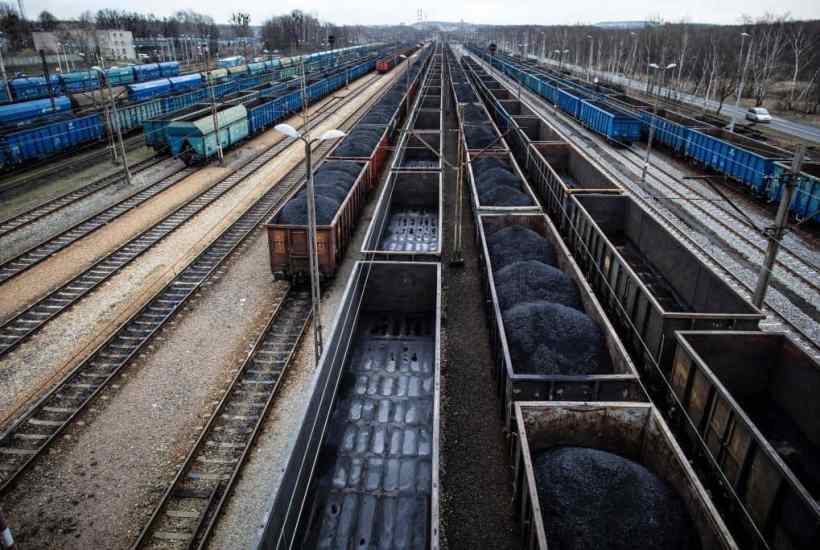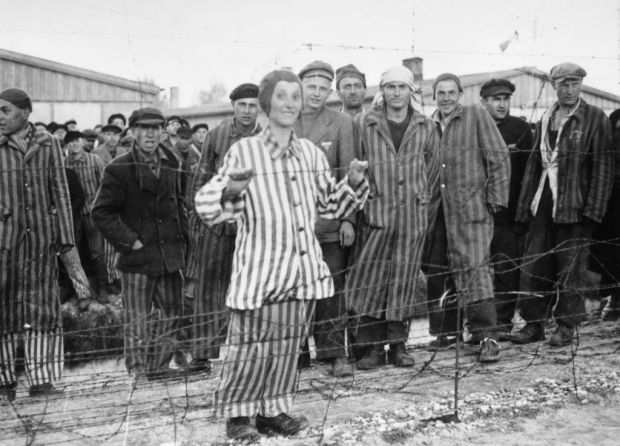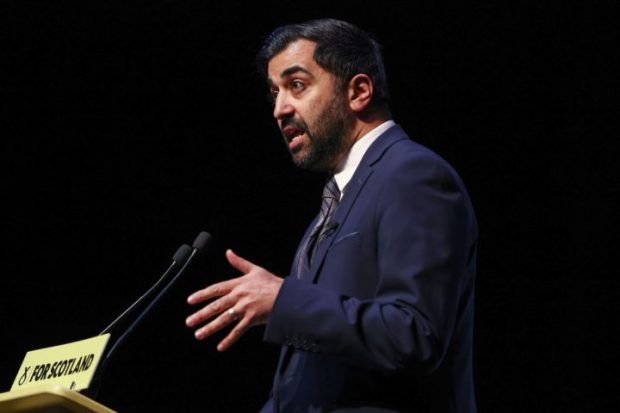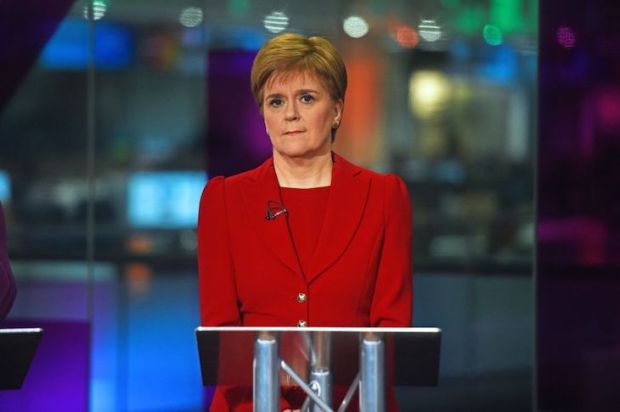Europe’s energy crisis shows little sign of abating. After Germany this week withheld approval for the Nord Stream 2 gas pipeline over fears that it could be used as a political weapon by Russia, benchmark gas prices spiked by 10 per cent across Europe, coming close to all-time highs set earlier this autumn.
Some energy traders had hoped that the first supplies arriving through the controversial pipeline would help alleviate pressures this winter, but on Thursday the president of Germany’s energy regulator played this down, warning that approval for Nord Stream 2 cannot be expected in the first half of next year. And as the prospect of relief from the East fades, cracks are starting to emerge in the EU’s wider energy policy, with rumblings of discontent growing in central and eastern Europe about the role which the EU’s climate strategy might be playing in the dire state of affairs.
The Polish parliament last Thursday passed a resolution saying the EU’s energy system ‘has become a huge threat to Poland following the adoption and implementation of new climate policy instruments.’ And in the neighbouring Czech Republic, ministers this week warned of steep increases in energy prices and entreated the EU to take a more liberal attitude towards the use of fossil fuels to keep lights on and homes warm this winter.
Experts have pointed out that there are multiple factors causing the current crisis. With Europe already heavily dependent on Russia for natural gas, it’s widely speculated that Vladimir Putin is toying with the bloc by holding resources in reserve which could be sent west. And the combination of a cold winter last year – leading to the depletion of existing stocks – and an explosive restart to industrial activity when pandemic restrictions were loosened, is thought to have caught the EU on the wrong foot.
Increased dependency on natural gas is the direct result of the EU’s emissions reduction strategy. Analysts have praised the switch to gas as a ‘success story’ in ‘filling the gap’ between the phase-out of carbon-intensive coal and the phase-in of renewables.
Yet the political ramifications of this switch are well known. Nearly half of the EU’s supply of natural gas comes from Russia – a proportion which is only likely to increase if and when Nord Stream 2 finally becomes operational. As control over Europe’s power supply falls ever deeper into the clutches of the Kremlin, eastern European states will find not find much solace in knowing that they are vulnerable to harsher geopolitical winds from the East thanks to an emissions reduction strategy formulated in Brussels.
But this isn’t their only concern. Leaders in the region are also becoming increasingly worried about the effect of the EU’s wider attempts to phase out fossil fuels, which they claim is going too far and too fast for the bloc’s less developed energy sectors to keep up.
Like the UK, the EU uses an emissions trading scheme (ETS) which limits the emissions available to certain industries through a steadily decreasing overall cap. This is intended to make emission-heavy fuel sources like coal less attractive in the short term and, in the longer term, to squeeze fossil fuels out of the European energy market altogether.
Unsurprisingly, the ETS is deeply unpopular in some central and eastern European member states which are still heavily dependent on fossil fuels. In the Czech Republic, fossil fuels still account for over half of all energy production, while in Poland the figure is higher still, at over 80 per cent.
As the market becomes ever more restricted, and as Russia assumes ever greater control over supply, these countries see the future very differently to wealthier EU member states with well-developed renewable power industries already in place. The European Commission is bullish about subjecting more of the bloc’s economy to the emissions trading scheme – but traditionally poorer, more fossil-fuel dependent countries are waking up to the fact that they will be the ones left picking up the tab.
The Czech minister of industry and trade, Karel Havlíček, warned this week that alternative energies won’t be able to replace fossil fuels in the country for almost 20 years, and local experts tell me that on the country’s current trajectory it will take longer still. Meanwhile in Poland, an EU directive earlier this year to close the giant Turów lignite mine led Prime Minister Mateusz Morawiecki to warn of an ‘energy disaster’ and ‘huge social problems.’
These countries will be more or less dependent on fossil fuels for decades to come. With the ETS making coal an increasingly inefficient economic proposition – and with natural gas supply becoming increasingly subject to the whim of Vladimir Putin as well as increased competition from Asia – they view the future with understandable trepidation.
A recent increase in the price of carbon emissions on the ETS, resulting from the substitution of dreaded coal for missing gas supplies, is now jolting central and eastern European leaders into panic about the direction in which the EU is heading. At an EU summit on Thursday, Czech leader Andrej Babiš demanded the return of 400 million emission allowances to the market to alleviate pressures, after Poland called for the ETS to be suspended altogether.
Having made a slow start in developing alternative energy sources, these countries are now realising that they could face a drawn-out economic catastrophe as a result of spiralling prices and decreasing availability of fossil fuels. Grim omens are already emerging; in the Czech Republic, the bankruptcy of major supplier Bohemia Energy earlier this autumn saw nearly a million customers switched to ruinous emergency contracts with replacement suppliers.
Cases like this raise concerns that the biggest losers of the EU’s emissions reduction drive will ultimately be the citizens of poorer countries which, as a result of historical disadvantage, have always been behind the curve in adopting renewables. Western Europe may be bullish about phasing out fossil fuels – but central and eastern European nations are unlikely to accept entrenched economic inequality as the necessary collateral damage of an energy revolution.
Got something to add? Join the discussion and comment below.
Get 10 issues for just $10
Subscribe to The Spectator Australia today for the next 10 magazine issues, plus full online access, for just $10.




















Comments
Don't miss out
Join the conversation with other Spectator Australia readers. Subscribe to leave a comment.
SUBSCRIBEAlready a subscriber? Log in